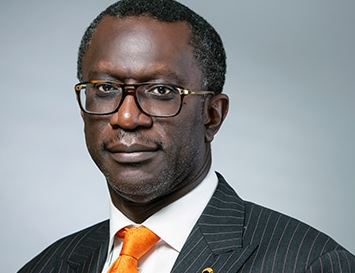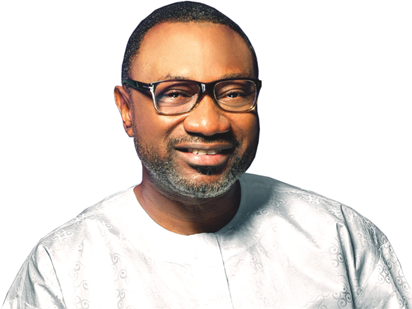By Bassey Udo
The raging controversy over the individual investor in First Bank of Nigeria with the controlling shareholding continued on Tuesday, with FBN Holdings naming Tunde Hassan Odukale as the substantial shareholder of the bank.
FBN Holdings Plc, the parent entity to First Bank Nigeria Limited, issued the update in another correspondence to the Nigerian Exchange Group (NGX) on the controversy titled “RE: Update on the Substantial Shareholders of FBN Holdings Plc.”
The latest information appears to have superseded a similar correspondence the bank issued previously to the NGX proclaiming Femi Otedola as the holder of the controlling shares of the bank.
 Tunde Odukale
Tunde Odukale
In the correspondence, FBN Holdings said Odukale owns about 5.36 percent of its equity against Otedola’s 5.07 percent.
Details of the FBNH’s letter confirmed to the NGX that Odukale, who is its incumbent Chairman, holds directly 4.16 percent of the bank’s equity and another 1.20 percent indirectly through parties related to him.
Following the controversy stirred by media reports about Otedola had emerged as the individual with the controlling shareholding of the bank, the NGX requested FBNH to clarify the current status of its shareholders’ information. Femi Otedola
Femi Otedola
In its response, FBNH apart from 4.16 percent equity held by Odukale, the 1.20 percent ascribed to partied relating to him included his “cumulative equity stake” of 1.05 percent of Leadway Pensure PFA’s holdings.
“The first part of the shareholding classification (4.16%), are shares held directly and indirectly by Mr Tunde Hassan-Odukale.
“The second part of the shareholding classification (1.20%), are shares ascribed to Mr Tunde Hassan-Odukale due to his influence and having significant control,” FBNH said in its letter to the NGX.
Justifying the inclusion of Odukale’s 1.05 percent equity holding in Leadway Pensure PFA as part of the 1.20 percent indirect stake in the bank, FBNH said it was because of his indirect interest in Leadway Holdings Limited.
The bank said the disclosure about Leadway Holding controlling 69 percent stake in Leadway Pensure PFA, with significant influence and control over Leadway Pensure was for full disclosure and transparency, in line with the provisions of the extant rules and regulations.”
Rule 17.15(c) of the Rule Book of the NGX mandates an ‘Insider’ to make full disclosure of their direct and indirect holdings as well as dealings in shares, to the Company for transparency.
FBNH said Odukale, the largest shareholder and Director of First Bank of Nigeria Limited, was profiled as an insider and as such obliged to disclose his direct and indirect shareholdings.”
On the list of all the substantial shareholders of the bank and their percentage shareholdings, FBNH said Odukale’s total 5.36 percent shareholding included 26,231,887 units of direct shareholdings and 1,897,280,212 units of indirect shareholdings.
FBNH disclosed that Odukale’s indirect shareholdings included through Leadway Assurance Company Limited; ZPC/Leadway Assurance Prem & Inv Coll Acct; Haskal Holdings Limited; Leadway Capital & Trust Limited; LAC Investments Limited; Leadway Properties and Investments Limited; Leadway Holdings (HoldCo); OHO Investment, and Leadway Pensure PFA.
For Otedola, FBNH ascribed to him a total of 5.07 percent shareholding, including 10,000,000 units of direct shareholdings and 1,818,551,625 units of indirect shareholdings through Calvados Global Services Limited.
Regardless, some investment analysts have faulted FBNH for ascribing to Odukale part of the 1.20 percent indirect stake in Leadway Pensure Pension Fund Administrator (PFA).
One of the analysts who requested that his identity should not be revealed, because of the sensitive nature of the case, said FBNH was wrong in its declaration, as investments by PFAs in companies quoted in the capital market are usually carried out on behalf of the Custodians and classified in the name of the Pension Fund Custodians and the PFA.
Besides, the analysts said it was unusual for operators of the PFAs to also be directors of companies they have investment interest, or related parties have shares, to avoid conflict of interest.
The analyst cited Section 6 6.1 iii of the Regulation on Investment of Pension Fund Asset of February 2019, which says: “The PFA or any of its agents are prohibited from investing Pension Fund Assets in the shares or any other securities, issued through public or private placement arrangements, by the following related party/person of any shareholder of the PFA.”
Also, Section 6.3 of the guideline also “prohibits PFAs from selling their assets to related party/person of any shareholder of the PFA.”
Both the Securities and Exchange Commission (SEC) and the Pension Fund Commission (PENCOM) are yet to make any public statements concerning the current controversy.




